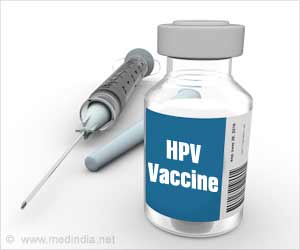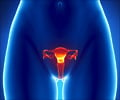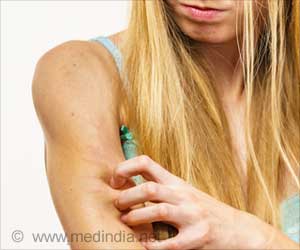Human papilloma virus (HPV) infection is a sexually transmitted infection. Two-dose regimen for HPV vaccine is endorsed by the American Cancer Society, reveals study.
Highlights
- Human Papillomavirus (HPV) is the most common sexually transmitted infections in the United States.
- Two dose-regimen of HPV vaccine recommended by the Advisory Committee on Immunization Practices (ACIP) is endorsed by the American Cancer Society.
- HPV vaccine provides adequate protection for both boys and girls between the age of 9-14 years.
The American Cancer Society has reviewed data from several clinical trials and found that two dose regimen of HPV vaccine in boys and girls around the age of 9-14 were found to be protected.
The updated recommendations from ACIP include:
- Two doses of HPV vaccine for persons initiating vaccines before the 15th birthday.
- The second dose of vaccine is initiated after 6-12 months of the first dose.
- A three-dose series vaccine for full HPV protection is given between the age of 15-26 years.
"This new two-dose regimen is easier to follow, and we now know is very effective in preventing HPV, which is linked to a half dozen types of cancer."
Inspite of the safety and efficacy of HPV vaccines, the US vaccination rate is very low when compared to other countries.
HPV infection is also linked to vaginal, vulvar, oropharyngeal, anal, and penile cancers apart from cervical cancer.
- Human Papillomavirus infections are the most common sexually transmitted infections in the United States.
- Around 14 million HPV infections occur every year.
- Cervical cancer is one of the most common types of cancer caused by HPV.
- 4 out of 5 people have HPV infections at any point in their lives.
- HPV vaccine provides protection against 70% of cervical cancers.
- HPV vaccines do not cause fertility problems which are linked to cervical cancers.
- Myths and facts about HPV and the vaccine - (http://www.hpvvaccine.org.au/parents/myths-and-facts-about-hpv-and-the-vaccine.aspx)
- HPV Vaccine: Facts and Fears - (https://www.cancer.org/cancer/cancer-causes/infectious-agents/hpv/hpv-vaccine-facts-and-fears.html)
- Human Papillomavirus (HPV) Vaccines - (https://www.cancer.gov/about-cancer/causes-prevention/risk/infectious-agents/hpv-vaccine-fact-sheet#q1)
Source-Medindia















